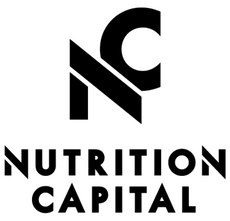Protein supplements are nutritional products designed to provide a concentrated source of protein to individuals looking to increase their protein intake. These supplements are popular among athletes, bodybuilders, fitness enthusiasts, and people with specific dietary needs.
Protein is a crucial macronutrient responsible for muscle repair, growth, and overall health. While protein supplements can be beneficial for some individuals, it's essential to understand their uses, potential benefits, and safety considerations.
Frequently Asked Questions (FAQs) about Protein Supplements:
-
Why do people use protein supplements? Protein supplements are commonly used to support muscle growth and repair, especially for those engaging in resistance training or intense physical activity. They can also help individuals who struggle to meet their protein requirements through regular dietary sources, such as vegetarians or vegans.
-
What types of protein supplements are available? There are various types of protein supplements, including whey protein, casein protein, soy protein, pea protein, and hemp protein, among others. Each type has unique characteristics and is suitable for different dietary preferences and needs
-
What is whey protein, and why is it popular? Whey protein is a high-quality protein derived from milk during the cheese-making process. It contains all essential amino acids and is quickly absorbed by the body, making it popular for post-workout recovery and muscle building.
-
Can women use protein supplements? Yes, women can use protein supplements just like men. Protein supplements can be beneficial for women looking to support their fitness goals or improve overall protein intake.
-
Are protein supplements safe? In general, protein supplements are considered safe for healthy individuals when consumed within recommended doses. However, people with certain medical conditions, allergies, or sensitivities should consult a healthcare professional before using protein supplements.
-
Do protein supplements make you bulky? No, protein supplements alone will not make you bulky. Muscle gain and body composition depend on various factors, including overall diet, exercise routine, genetics, and hormonal balance.
-
When is the best time to take protein supplements? The timing of protein supplement consumption can vary based on individual goals and preferences. Many people prefer taking protein immediately after a workout to aid in muscle recovery, but spacing protein intake throughout the day is equally important.
-
Can protein supplements replace whole food sources of protein? While protein supplements can be a convenient way to increase protein intake, they should not replace whole food sources of protein entirely. A balanced diet that includes a variety of protein-rich foods is essential for overall health and nutrition.
-
Do protein supplements cause kidney damage? For individuals with healthy kidneys, protein supplements are unlikely to cause kidney damage when used in moderation. However, those with pre-existing kidney conditions should consult a healthcare professional before using protein supplements.
-
How much protein should I take daily? Protein requirements vary based on factors like age, weight, activity level, and fitness goals. As a general guideline, the recommended daily intake is around 0.8 to 2.2 grams of protein per kilogram of body weight. We suggest a variety of protein sources.
Here at Nutrition Capital we advise you to consult a healthcare professional or a registered dietitian to ensure it aligns with your health and fitness goals. Additionally, individual responses to supplements can vary, so it's essential to monitor how your body reacts and make adjustments accordingly.

